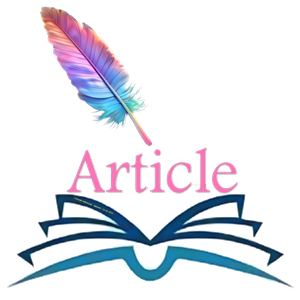Title: Narrative Collusion and Allegiance Justifying: A Cultural Critical Approach to The Dictator’s Last Night Novel by Yasmina Khadra
Adel BOUDIAR
University of Shahid Sheikh Al-Arabi
Tebessi – Tebessa, Algeria
Abstract
Yasmina Khadra’s novels adeptly navigate complex themes such as terrorism and revolution, employing a gripping narrative style that skillfully constructs a purposeful, creative storyline. This narrative technique is designed to accentuate the emotional dynamics and psychological transformations experienced by all participants throughout the depicted events. Commonly, Khadra interweaves a romantic subplot within his narratives, artfully blending reality with fiction. His novel, The Dictator’s Last Night, vividly recounts the confrontation faced by Libyan Leader Muammar Gaddafi shortly before his demise. In this portrayal, Khadra draws a subtle yet profound parallel between revolution, portrayed as a fringe act of defiance, and authority, seen as a central, dominant force. This juxtaposition reveals Khadra’s critical stance on revolutions; he views them as inherently unnatural acts that disrupt the transcendent balance of established centrism, regardless of the justification provided by their leaders. By delving into the depths of Gaddafi’s ordeal and the dispositions of the rebels, Khadra exposes the complex layers of loyalty and violent opposition, illustrating how the revolution strayed from its noble intentions towards a path marred by gruesome vengeance and malevolent retribution.
Keywords:
Allegiance, collusion, Cultural Critical Approach, Dictator’s Last Night, Revolution, Yasmina Khadra
How to Cite this Paper:
Boudiar, A. (2024). Narrative Collusion and Allegiance Justifying: A Cultural Critical Approach to The Dictator’s Last Night Novel by Yasmina Khadra. ATRAS Journal, 5(2), 220-232
References
Barakat, H. (2006). . Alienation in Arabic culture: Man’s labyrinths between dream and reality. Beirut: Arabic Union Studies Center.
Bauman, Z. (2016). Liquid Life. (H. A. Djabr, Trans.) Beirut, Lebanon: Arabic network for research and publishing.
Derradj, F. (2004). The novel an interpretation of history: the novel’s theory and the Arabic novel. Casablanca Morocco: Arabic cultural centre.
Dik, Z. (2003). Yasmina Khadra as he talked, as he wrote.Algiers: Dar Elhouda.
Eljaachami, N. S. (2022). Cultures’ reflection, harmony and contradictions between determinism and experimentation in narrative texts. Cairo, Egypt: Free printing house for printing and publishing.
Fassi, M. (2000). Studies in Algerian novel. Algiers: Dar Elkasaba for publishing.
Hafnaoui, B. (2004). .Algerian narrative discourse’s mutations: renewal perspectives and abstraction adventures. Oran: Dar Elgharb for publishing and distributing.
Khadra, Y. (2016). The dictator’s last night.(A. Serkis, Trans.) Beirut, Lebanon: Dar Essaki.
Mefkouda, S. (2005).The emergence of Arabophone novel in Algeria: roots and fudamentals. Algerian Language and Literature Laboratory Journal, 02(01), 07-32. Retrieved from https://www.asjp.cerist.dz/en/downArticle/104/2/1/24207
Noureddine, M. A. (2000). Disguise in Arabic authoritarian society: a social and psychological reading of the relation between the Self and the Other. Beirut Lebanon & Casablanca Morocco: Arabic Cultural Centre.
Oumssaad, H. (2018). The third eye: applications in cultural and post-colonial criticism. Algiers: Mim publishing.
Saad, M. R. (2006). Politics is a theme in the novel. Retrieved from Elhiwar Elmotamaddin: https://www.ahewar.org/debat/show.art.asp?aid=81278
Yaktine, S. (2000). Literarature and institution: toward a new literary practice. Casablanca Morocco: Ennadjah new printing.

Copyright for all articles published in ATRAS belongs to the author. The authors also grant permission to the publisher to publish, reproduce, distribute, and transmit the articles. ATRAS publishes accepted papers under the Creative Commons Attribution-NonCommercial 4.0 International (CC BY-NC 4.0) License. Authors submitting papers for publication in ATRAS agree to apply the CC BY-NC 4.0 license to their work. For non-commercial purposes, anyone may copy, redistribute material, remix, transform, and construct material in any media or format, provided that the terms of the license are observed and the original source is properly cited.







































































